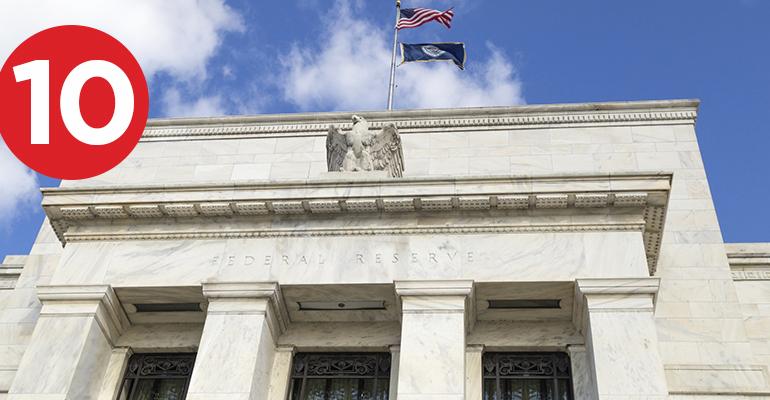- Fed Likely to Raise Rates, Possibly End ‘Accommodative’ Policy Era “With the Federal Reserve widely expected to raise interest rates on Wednesday, financial markets are focused on whether signs of an acceleration in U.S. economic growth will prompt the central bank to ramp up the pace of monetary policy tightening. This week’s two-day policy meeting could mark the formal end of the ‘accommodative’ level of rates the Fed has used to support the American economy since the onset of the 2007-2009 recession.” (Reuters)
- New York Hotel Market Roars Back After Drowning in Too Much Supply “The New York City hotel market is bouncing back, as a growing U.S. economy and a wellspring of visitors have helped overcome years of construction that flooded the city with new hotels and pressured room rates. Hotels in the city are enjoying their highest occupancy rates since 2000 for the first eight months of the year, according to data provider STR. The market also has experienced the fastest growth in revenue per room since 2013.” (Wall Street Journal, subscription required)
- Elizabeth Warren Proposes Legislation for Affordable Housing Crisis “Massachusetts Senator Elizabeth Warren on Tuesday introduced legislation to address the affordable housing gap. The bill, called the American Housing and Economic Mobility Act, would direct about $500 billion, primarily to build and rehabilitate housing for low- and moderate-income Americans. It would also create incentives for local governments to eliminate land use restrictions that drive up costs. It would also steer down payment assistance monies to communities historically denied mortgages by the government - people living in formerly redlined or officially segregated areas.” (MarketWatch)
- Amazon Makes First Investment in a Homebuilder, Backing Start-Up Focused on Prefabricated Houses “Amazon has made clear that it wants to own the smart home space. Now the company's going a step further, taking a stake in a start-up that's building actual homes. On Tuesday, Amazon said its Alexa Fund invested in Plant Prefab, a Southern California company that says it uses sustainable construction processes and materials to build prefabricated custom single- and multifamily houses. The start-up is aiming to use automation to build homes faster and bring down costs.” (CNBC)
- Tishman-Speyer Launching its Own Co-Working Brand “If you can’t lick ’em, join ’em. After leasing portions of its buildings to various co-working companies, Tishman Speyer is launching Studio, its own co-working brand, in Rockefeller Center — with plans to roll it out in its buildings around the world. Studio will launch on Nov. 1 in the 35,000-square-foot second floor of 600 Fifth Ave. on the northwest corner of 48th Street.” (New York Post)
- Apartment Rents Edge Higher “Apartment rental prices edged higher in the third quarter, but deals for renters still abound in major metro areas across the U.S. as landlords brace for more supply in the months ahead. Apartment rents rose 2.9% in the third quarter from a year earlier, up from 2.5% annual rent growth in the second quarter, according to real estate analytics firm RealPage Inc. A strong economy with better wage growth helped boost demand for apartments. So did a weak home-sales market, as tight supply may have prompted more renters to put off buying.” (Wall Street Journal, subscription required)
- Inspector Inches Down Face of SF’s Millennium Tower to Check Cracked Window “A window-washing rig was lowered gingerly down the outside of Millennium Tower’s western face Tuesday morning, carrying an engineering inspector on a mission to examine the cracked window on the sinking building’s 36th floor. The external inspection, which took about 90 minutes, represented one of the last major items on the building management’s to-do list before it submits a report to San Francisco’s Department of Building Inspection detailing what caused the window to crack on Sept. 2.” (San Francisco Chronicle)
- The Top 5 Most Affordable Places to Retire in America “Saving enough to retire isn't always easy, and neither is living for years on what you've managed to save. A recent GOBankingRates survey found that 42 percent of Americans currently have less than $10,000 saved for retirement. Meanwhile, those aged 65 and older spend an average of almost $46,000 a year, reports the U.S. Bureau of Labor Statistics. If you monitor your spending carefully, however, and retire in a place where the cost of living is low, it's easier to get more for your money.” (CNBC)
- This Broker Wants to Build the Zillow for CRE Debt “Think of a developer trying to raise financing for a project, and you might conjure up an image of an army of debt brokers pounding the phones, going through their extensive books of lenders to find the one with the lowest rate, and taking the deal back to the developer in exchange for a fat commission. Adi Chugh wants to change that picture. Best known for heading the boutique debt brokerage Maverick Commercial Properties, Chugh launched an online debt marketplace this week that aims, he said, ‘to make the broker less and less relevant.’” (The Real Deal)
- Miami Named Worst City for Renters in the U.S. for the Second Year in a Row “If you feel like you’re spending way too much of your paycheck on your monthly rent, you’re not wrong. For the second year in a row, South Florida has been named the worst metro area in the U.S. for renters. A new study by the website Apartment List shows that 62.7 percent of renter households in Miami-Dade, Broward and Palm Beach in 2017 were cost-burdened — which means they paid more than 30 percent of their income on rent. That’s only a tiny improvement from 2016, when 62.8 percent of South Florida households were cost-burdened.” (Miami Herald)
0 comments
Hide comments

